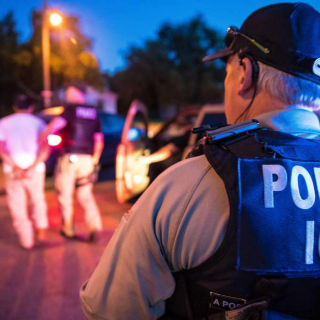Do some people deserve to be locked in cages? According to the Ohio Organizing Collaborative the answer is yes. Their multi-million dollar “Neighborhood Safety, Drug Treatment, and Rehabilitation Amendment” ballot initiative, or NSDTRA, aims to liberate prisoners convicted of non-violent drug-related charges and prisoners who participate in prison programs at the expense of criminalizing those who fall outside these narrow parameters.
Proponents claim its necessary to build power and secure a win for activists who have been demoralized after failed attempts to hold corrupt public officials accountable. To achieve this, they plan to sacrifice many prisoners at the voting bloc.
The logic used to justify NSDTRA is that prisoners convicted of non-violent drug-related offenses are low-hanging fruit, activists aren’t competent enough to effectively advocate on behalf of prisoners convicted of violent or non-drug related charges and the general public lacks the creative imagination to envision a world without police or prisons.
Abolitionists suggest that the fine print in NSDTRA would extend the life and scope of a prison system that is ableist, racist, sexist and anti-democratic. For example, the amendment contains three-strikes provisions that “include jail time” for people on probation or parole.
Critics say NSDTRA is not in the best interests of survivors of interpersonal violence like Bresha Meadows or the 25 womyn granted clemency by Governor Celeste of Ohio after being criminalized for defending themselves against abusive husbands and companions.
Opponents assert that NSDTRA’s pacifist provisions reinforce the criminalization of political prisoners and prisoners of war who advocated for armed self-defense. NSDTRA would not apply to people like the guerrilla girls who participated in an armed struggle against apartheid South Africa or Nelson Mandela who said, "To be free is not merely to cast off one's chains, but to live in a way that respects and enhances the freedom of others."
The cannabis revolution and the opiod crisis has generated renewed interest in the century-old tragedy known as the War On Drugs. This is reflected in NSDTRA’s advocacy for prisoners with drug-related charges. While NSDTRA requires that “substance abuse treatment programs” be “effective,” it fails to describe exactly what constitutes an effective treatment program or how to address Trojan horse prison reforms.
According to an American Friends Service Committee report on the treatment-industrial-complex, most for-profit corporations have “dismal records in terms of safety, cost and quality.” Also, “private prison corporations” have a “perverse incentive not to rehabilitate.” This mirrors Ohio Department of Rehabilitation and Correction’s refusal to provide prisoners with broadly equal access to the “rehabilitative, work, or educational programming” assumed by NSDTRA’s sentencing provisions.
Despite private-sector concerns, 70% of cost savings from NSDTRA would be funneled into state-based mental health and treatment programs. This provision contradicts calls for community-based alternatives while ignoring lessons learned from the most successful movements to decarcerate in U.S. history – the anti-psychiatry and de-institutionalization movements.
In conclusion, NSDTRA’s attempt to reform prisons appears to be misguided. In turn, we must continue our struggle to decarcerate the carceral state by resisting efforts to pursue wins that result in the building of higher and thicker walls that future generations of prisoner solidarity activists will have to overcome.



